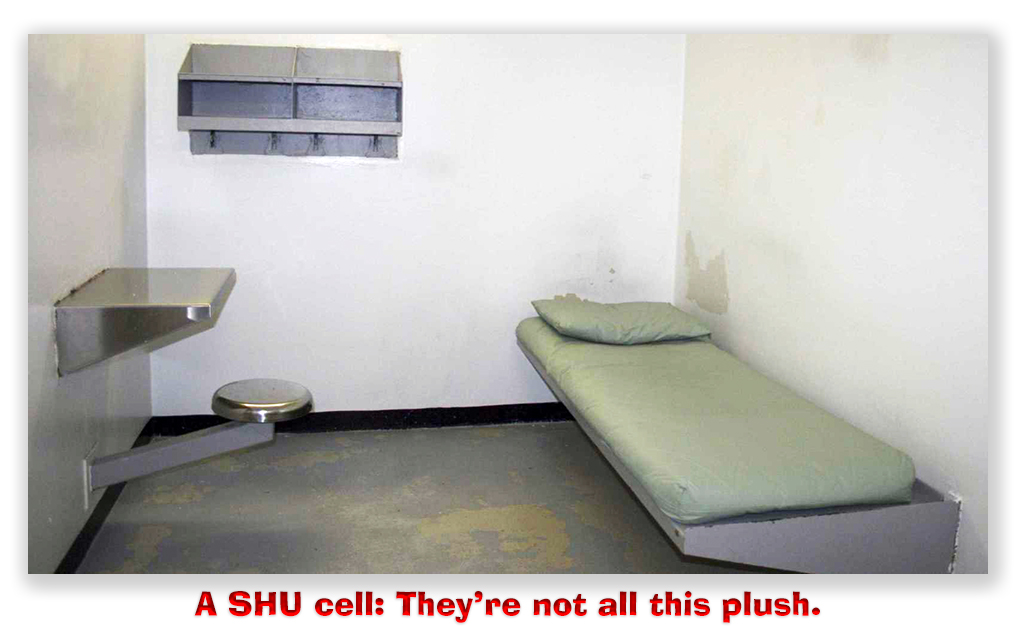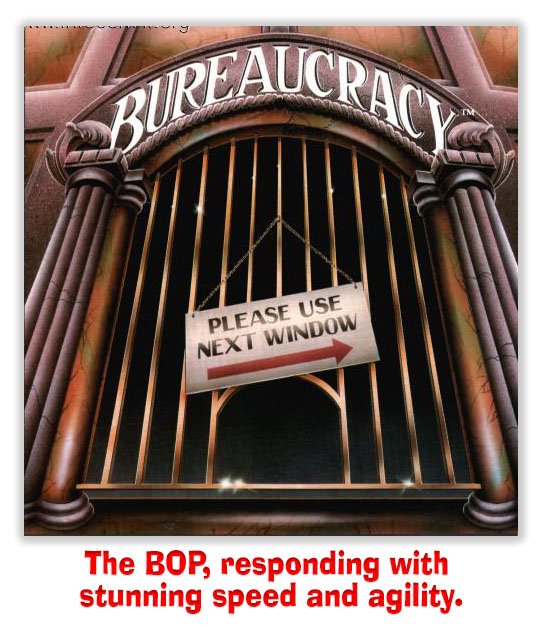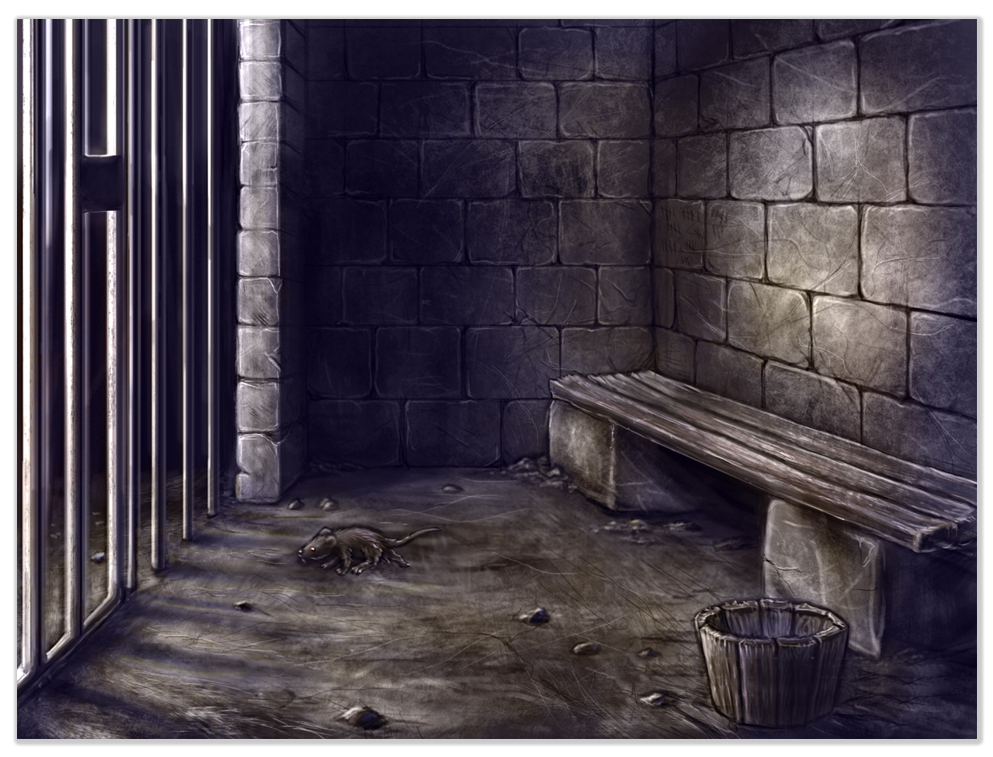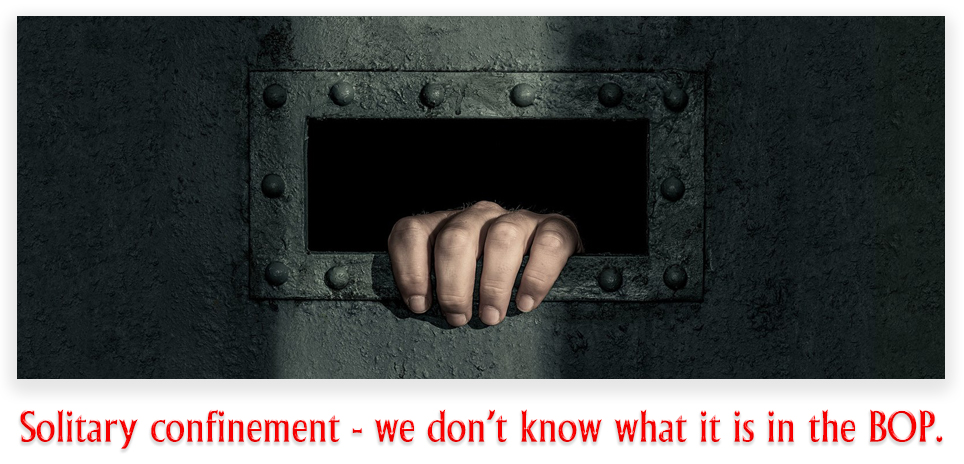We post news and comment on federal criminal justice issues, focused primarily on trial and post-conviction matters, legislative initiatives, and sentencing issues.

PETERS BLUNT WITH SENATORS ABOUT BOP TROUBLES
No one who’s ever had a beef with what I publish in this blog – and there surely are a lot of people who have complaints – has ever accused me of being an apologist for the Federal Bureau of Prisons. But here goes…
 Watching BOP Director Colette Peters testify before the Senate Judiciary Committee last week was a refreshing departure from her previous appearances and a downright treat after enduring years of painful appearances by her clueless predecessor Michael Carvajal.
Watching BOP Director Colette Peters testify before the Senate Judiciary Committee last week was a refreshing departure from her previous appearances and a downright treat after enduring years of painful appearances by her clueless predecessor Michael Carvajal.
“The Feds survey says the Federal Bureau of Prisons is the worst place to work in federal government, so we have a lot of work to do,” Peters candidly told the Committee last Wednesday during the hearing Committee Chairman Richard Durbin (D-IL) called in response to a DOJ Inspector General report on inmate deaths in federal prison.
That report, issued two weeks before, found that systemic and operational failures contributed to scores of prisoner deaths over the years. Durbin convened the hearing to underscore the report findings that – among others – suicide accounted for over half of the deaths reviewed by the IG.
Sharing the witness stand with DOJ IG Michael Horowitz, Peters was the target of most of the senators’ questions. But unlike her stumbling performances in prior Congressional hearings, Peters was confident, direct and armed with facts and numbers during the 2-hour session. And when Sen John Kennedy (R-LA) hectored her in one of the most bizarre barrage of questions in recent memory, she cooly stared him down while undoubtedly controlling the urge to ask him who tied his shoes for him every morning.
But back to the hearing.
Paters laid most of the blame for the issues raised in the report on BOP’s chronic staffing shortages. She told the senators that the data on BOP correctional officers are “startling,” rattling off the stats:
One in three have symptoms of PTSD. That means more anxiety, more depression, [and] that means more reliance on substance abuse and higher levels of divorce. Over 90% are obese or in the overweight category, over 90% have hypertension or pre-hypertension… What we’re finding across the country, in some places they can leave the [BOP] and work for state corrections and make two to three times more, let alone the bonuses that we’re battling against at fast food organizations. So it is incredibly difficult… I also want to remind the committee that the average onboarding for law enforcement in this country is 21 weeks [of training] and our officers receive about six. It’s truly unfortunate.
 The IG report found that a shortage of psychiatric services employees “strained the ability of staff” in facilities where prisoners died “to provide adequate care to mentally ill inmates.” This has been a chronic BOP problem, where a dearth of mental health resources has led to many people being underdiagnosed, a 2018 Marshall Project investigation found. In the Senate hearing, Horowitz noted that over 60% of people who died by suicide in federal prisons had been on the Mental Health Care Level 1, meaning the BOP had determined that they did not need regular care mental health care.
The IG report found that a shortage of psychiatric services employees “strained the ability of staff” in facilities where prisoners died “to provide adequate care to mentally ill inmates.” This has been a chronic BOP problem, where a dearth of mental health resources has led to many people being underdiagnosed, a 2018 Marshall Project investigation found. In the Senate hearing, Horowitz noted that over 60% of people who died by suicide in federal prisons had been on the Mental Health Care Level 1, meaning the BOP had determined that they did not need regular care mental health care.
Peters and Horowitz both pointed to staffing shortages as a key driver of the problems. A lack of clinical staff like psychologists and corrections officers has been an endemic challenge in many BOP facilities, the Marshall Project reported last weekend.
Horowitz also suggested that the BOP’s problems may be more than just staffing. Talking about contraband, he that “we’ve had a staff search policy recommendation open for years that has not been implemented, the basic search policy for staff coming into the facility, that hasn’t happened, either…” Several senators cited a GAO report last month that the BOP has failed to implement 58 of 87 recommendations on improving restrictive housing (also known as Special Housing Units, or SHUs) practices.
Kennedy tried to beat up Peters with a theatrical performance accusing her of using the First Step Act to release 30,000 criminals, 12% of whom have been recidivists (as though the decision when to release prisoners is her responsibility). Punctuating his questions with dramatic eye rolls and sighs of “Wow,” Kennedy sought to blame Peters for releasing thousands of violent criminals to prey on helpless civilians.
Kennedy: “How many criminals have you released under the First Step Act?”
Peters: “We have about 30,000 individuals that have been released since the passage of the First Step Act.”
Kennedy: “All right, so you’ve released 30,000 criminals under the First Step Act, okay? . . . Before you released them, did you contact any of their victims to say, ‘We’re about to let this guy out’?”
Peters: “Senator, it’s my understanding that that notification happens through the U.S. Attorney’s Office, but I will check into that and get back to you.”
Kennedy: “You don’t know?”
Peters: “Senator, I don’t.”
Kennedy: “Wow. Okay, of the 30,000 criminals you let free, how many of them have come back, have committed a crime again, hurt somebody else?”
Peters: “So, that number is one that we’re still looking at as it relates to the recidivism rate for those that were released on the First Step Act.”
Kennedy: “You don’t have any idea?”
Peters: “No, Senator.”
The implication that Peters and the BOP should be responsible for victim notification – a duty of the US Attorneys offices – or maintaining recidivism records is risable. It’s like asking the Veterans Administration how much ammo the Defense Dept has.
 Beyond that, suggesting that somehow Peters was releasing BOP prisoners on her whim, rather than in response to the court-ordered sentences ending or statutory mandates requires a special kind of ignorance of the law unbecoming of a man who was Phi Beta Kappa and with years of experience as a lawyer. That makes his embarrassing performance all the more puzzling.
Beyond that, suggesting that somehow Peters was releasing BOP prisoners on her whim, rather than in response to the court-ordered sentences ending or statutory mandates requires a special kind of ignorance of the law unbecoming of a man who was Phi Beta Kappa and with years of experience as a lawyer. That makes his embarrassing performance all the more puzzling.
He did not embarrass Peters, who was calmly unfazed by his attack. Committee Chairman Richard Durbin (D-IL) finally braced Kennedy: “Don’t put your head in a bag… The First Step Act was a constructive reform of the penal system and I think it was a good idea and I stand by it.”
Sen Cory Booker (D-NJ) said the BOP has simply not been provided enough resources. “I have a lot of frustrations obviously with what’s going on. But I’ve watched you now as a professional struggle mightily to meet the demands that are put on you in a moment where Congress is not giving you the resources necessary to do your job,” Booker said.
Sen Chris Coons (D-DE) told Peters that she has “inherited a deeply troubled institution and I suspect you some days feel like your job is more akin to trying to change the direction of an aircraft carrier than lead an agile and well-resourced organization because the BOP is frankly neither and I appreciate the determination, openness and vigor with which you’ve approached this task.”
Almost half of the suicides took place in a “restrictive housing setting,” the IG Report said. Durbin told Peters that “despite the decrease in Bureau of Prisons total population since you were sworn in as director in August of 2022 the percentage and total of number of individuals and restricted housing is actually higher than it was at that time…”
 Peters said that almost 40%t of those who lived in restrictive housing did so by their own choice. Nevertheless, she admitted that “everyone who is in restrictive housing has or will suffer from some form of mental or physical damage. I think even those that are agreeing or wanting to be in restrictive housing need to be educated on the fact that that isn’t where they belong and that we need to be able to safely house them in [general population]. Just because they’re volunteering to be there doesn’t mean that the physical and mental wear and tear isn’t happening for them as well.”
Peters said that almost 40%t of those who lived in restrictive housing did so by their own choice. Nevertheless, she admitted that “everyone who is in restrictive housing has or will suffer from some form of mental or physical damage. I think even those that are agreeing or wanting to be in restrictive housing need to be educated on the fact that that isn’t where they belong and that we need to be able to safely house them in [general population]. Just because they’re volunteering to be there doesn’t mean that the physical and mental wear and tear isn’t happening for them as well.”
“It’s time for solutions and change,” Durbin agreed. “The lives of hundreds of Americans in Bureau of Prisons custody are at risk.”
Roll Call, Federal prison director tells senators about staffing ‘crisis’ (February 28, 2024)
Capital News Service, Deaths in federal prisons draw fire from Senate panel (February 29, 2024)
DOJ, Office of Inspector General, Evaluation of Issues Surrounding Inmate Deaths in Federal Bureau of Prisons Institutions (February 15, 2024)
The Marshall Project, How Federal Prisons Are Getting Worse (March 2, 2024)
WHBF-TV, Senate Judiciary Committee grills Bureau of Prisons chief on staffing, inmate deaths (February 28, 2024)
Sen John Kennedy, Kennedy questions Bureau of Prisons on early release of criminals: “You don’t have the slightest idea how many of them committed another crime and came back?” (February 28, 2024)
– Thomas L. Root











